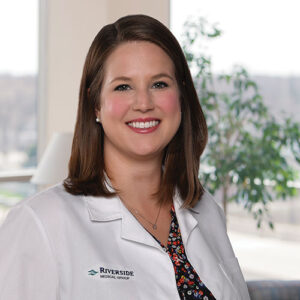Protecting Your Health: Understanding the HPV Vaccine
In recent years, discussions about vaccines have become more prevalent, and rightly so. Vaccines are one of the most effective tools we have in preventing the spread of diseases and protecting public health. Among these vaccines is one that stands out for its ability to prevent certain types of cancers: the HPV vaccine. Here at Riverside Healthcare, we believe it’s essential to shed light on this crucial vaccine, its benefits, and address common misconceptions surrounding it.
What is HPV?
Human Papillomavirus (HPV) is the most common sexually transmitted infection globally. It encompasses a group of over 200 related viruses, some of which can lead to various health issues, including genital warts and cancers. HPV is primarily transmitted through intimate skin-to-skin contact, making it highly contagious.

How does the HPV Vaccine Help?
“The HPV vaccine works by stimulating the body’s immune system to produce antibodies against specific strains of the virus. By receiving the vaccine, individuals develop immunity to these strains, reducing their risk of HPV-related complications, including cervical, anal, penile, and oropharyngeal cancers,” says Riverside Medical Group Primary Care Provider, Katie Van Hoveln, NP-C.
Who Needs the HPV Vaccine?
The Centers for Disease Control and Prevention (CDC) recommends routine HPV vaccination for adolescents aged 11-12 years. However, vaccination can be administered as early as age 9 and up to age 26 for those who haven’t previously received it. Additionally, adults aged 27-45 may discuss vaccination with their healthcare provider based on individual risk factors.
Common Misconceptions about the HPV Vaccine:
Myth: The HPV vaccine is only for females.
Fact: While HPV vaccination is crucial for females due to its role in preventing cervical cancer, it’s equally important for males. HPV can lead to various cancers affecting all genders, making vaccination essential for everyone’s health.
Myth: The HPV vaccine encourages promiscuity.
Fact: Research has shown no evidence to support this claim. The HPV vaccine is a preventive measure against a sexually transmitted infection that can lead to cancer. It does not promote or discourage any particular behavior.
Myth: HPV vaccination isn’t necessary if you’re in a monogamous relationship.
Fact: HPV is incredibly common, and many people may unknowingly carry the virus without showing symptoms. Even in monogamous relationships, individuals can still be exposed to HPV. Vaccination provides protection against various strains of the virus, reducing the risk of HPV-related cancers.
Myth: The HPV vaccine is unsafe
Fact: Extensive research and clinical trials have demonstrated the safety and efficacy of the HPV vaccine. Like all vaccines, the HPV vaccine undergoes rigorous testing before approval for public use. The benefits of vaccination in preventing HPV-related cancers far outweigh the minimal risks of side effects.
“The HPV vaccine is a vital tool in preventing HPV-related cancers and promoting overall health. At Riverside Healthcare, we encourage open dialogue between patients and healthcare providers to address any concerns or questions regarding vaccination,” says Katie.
By staying informed and proactive, we can work together to protect ourselves and our communities from preventable diseases. Talk with your primary care provider today about scheduling your HPV vaccine. If you don’t have a primary care provider, visit RiversideHealthcare.org/primary care to find the provider that fits your needs.
